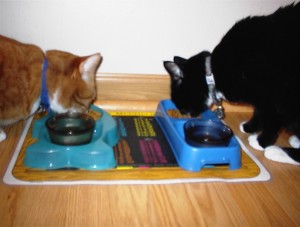Creative and colorful, specific and exact, or do you interact with a specialized group, using special words and symbols which can be obfuscating to people who haven’t been out of their world lately.
Here is an interesting concept for you to consider and a simple exercise to bring you knowledge of your world view and maybe someone else’s by way of “What is your code?” by Cat Wilson, a Master Trainer in NLP.
Linguistic obfuscation. Sounds confusing, doesn’t it? What is clear to a person or people in one group is confusing to people outside of the field.
What is that about? Coding. Let’s start with the word “obfuscate” and where it was created.
obfuscate |ˈäbfəˌskāt|
verb [ with obj. ]
render obscure, unclear, or unintelligible: the spelling changes will deform some familiar words and obfuscate their etymological origins.
- bewilder (someone): it is more likely to obfuscate people than enlighten them.
ORIGIN late Middle English: from late Latin obfuscat- ‘darkened,’ from the verb obfuscare, based on Latin fuscus ‘dark.’
Years ago books were basically written in Latin. Latin was only taught to Aristocrats. You had to know Latin first in order to read the books. Who controlled the knowledge? Communities of the wealthy Aristocrats. The elite controlled knowledge, and only certain people understood. Later printing presses put more books out in English and the World Wide Web provided a forum for sharing.
It’s more open today, but with language … there is still some obfuscation. There is still code. Some areas refer to this as their jargon. It’s a limited vocabulary that basically only makes sense to those who work, live or paly in that particular area or use that technology / discipline.
Code – Jargon
In the book Creativity, Mihaly Csikszentmihalyi talks about how different “domains” create secret codes so that only people in that field can understand them. Check out his TED Talk on Creativity. Think about when your doctor talks about medical conditions. When she or he discusses issues with an associate in the lab, nurses, or other doctors they speak the same code (jargon) and it helps, because it’s specific to their field and they understand each other. However, when they say to you, “Your insulin receptors aren’t responding and we need to put you on … bla bla bla bla.” Your eyes glaze over.
Professionals such as lawyers, psychologists, scientists, chemists, architects, engineers, financial practitioners and anyone in a specific field probably has specialized language. Maybe you, too, have a field where you may not realize that people need to hear what you say in a new or different way to understand you.
Neuro-linguistic Programming Creates Awareness
 Cats are programmed to eat, sleep, and have their own language. “Meow!” They listen and understand eachother, because they know what the other cat is communicating. Neuro-linguistic Programming or NLP Practitioners learn how to “listen” and become better at communicating because of it.
Cats are programmed to eat, sleep, and have their own language. “Meow!” They listen and understand eachother, because they know what the other cat is communicating. Neuro-linguistic Programming or NLP Practitioners learn how to “listen” and become better at communicating because of it.
In NLP, you listen to the whole person, giving attention to each person’s unique language. Are they speaking with visual words? As I see it, or it’s not clear. Feeling words? That doesn’t feel right, or it’s a pain in the neck. Time words? Are they in the present, living in the past or future? We become curious and politely ask questions. Etc.
Explorers on a Journey
Our quest in NLP is to help the “explorer” to discover in sensory terms and in language-ing how they work inside themselves and how they view the world. Then we work together to create a well-formed outcome. Some questions could include:
- What do you want?
- How do you see or imagine having what you want?
- What do you hear and say inside to yourself that helps you achieve what you want? And when you see and hear that in just the right way, notice how you feel inside and what that means to you. How do you envision your future? What’s missing or needed?
What is Your Code?
You are an individual. No person is exactly like you. How does that happen? You had experiences and made decisions … decisions on what you saw, heard and felt with your emotions. This background learning or perception was based on your context, knowledge at the time, and what made sense to you at that age and time.
NLP is a powerful and lovely self-balancing skill where you can notice what is happening in time. Awareness is a wonderful thing! Then you can tweak yourself here and there to make adjustments in creating a better life.
Create a list of 7 words or symbols that are only known in your field or group.
- _____________________________________________________________
- _____________________________________________________________
- _____________________________________________________________
- _____________________________________________________________
- _____________________________________________________________
- _____________________________________________________________
- _____________________________________________________________
You have your “linguistic” communication. Notice how you see the world and hear the world through these words and symbols. How do you feel using them? This is the “Neuro” part of Neuro-linguistic. Now, notice how naturally you use this communication with your own group and outside with others. Your “programming.” Do some people seem more comfortable? Others confused? Obfuscating, are you? Walla! Now you have your worldview. Share your worldview with another person with a different one. Let me know how it goes.
Want to Be HEARD?
Experience NLP with us at Apositiva. Get CREATIVE.
We listen to you. It’s nice to have someone who listens.
Our mission is to enrich the lives around us by helping people and companies in ways that define and support a positive change. What changes would serve you now?
We offer private sessions.
Call us at 503-525-0595 and be heard.


